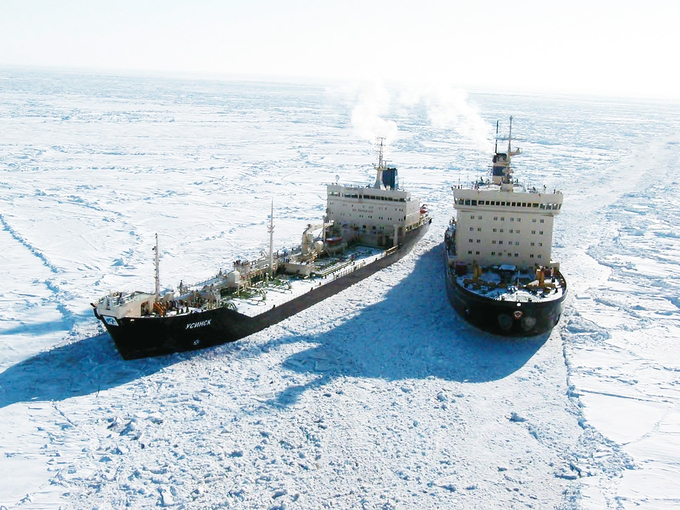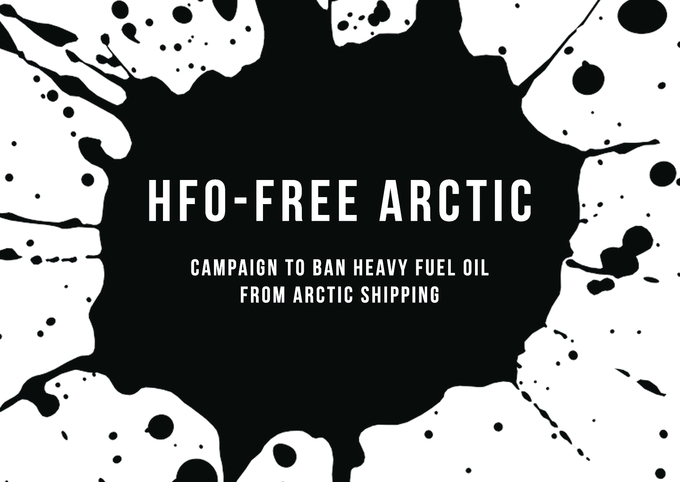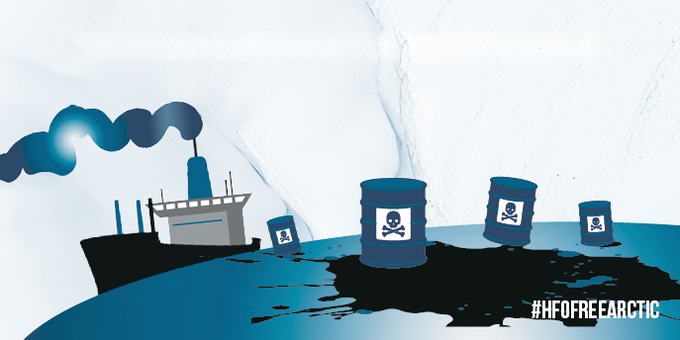
Commenting ahead of Tuesday’s European Parliament plenary vote on international ocean governance, relating to the 2030 Sustainable Development Goals, Dr Sian Prior, lead advisor to the Clean Arctic Alliance, said:
“The Clean Arctic Alliance welcomes the recognition within the ocean governance resolution of the urgent need to agree a ban on the use and carriage in fuel tanks of heavy fuel oil (HFO) by Arctic shipping, and we urge MEPs to vote in favour of its adoption. With warming occuring at unprecedented levels in the Arctic, and sea ice is receding at a dramatic rate, the region is set for an era of increased shipping. In 2017, the International Maritime Organization began moves towards a HFO phase out ? an action that must both reduce Arctic shippings’ contributions to climate forcing, and reduce the threat associated with a fuel oil spill. HFO and Arctic ecosystems are incompatible: we must ban the use of HFO in the Arctic now!”
Figures from 2015 show that under half (44%) of vessels operating in the Arctic were using heavy fuel oil (HFO), however, because it tends to be the larger vessels operating on HFO, around 75% of the marine fuel currently carried as bunkers in the Arctic is HFO.

July 2017: “The proposal, Measures to Reduce Risks of Use and Carriage of Heavy Fuel Oil as Fuel by Ships in Arctic Waters was proposed by Canada, Finland, Germany, Iceland, the Netherlands, Norway and the US, and supported… by the Czech Republic, Denmark, Estonia, France, Poland, Singapore, Spain and Sweden. Concrete proposals for measures to reduce the risks of HFO will now be considered by MEPC 72 in April 2018.
W. whereas the risks posed by the use of heavy fuel oil (HFO) in Arctic maritime transport are multiple: in the event of spills, the highly dense fuel emulsifies, sinks and can travel extremely long distances if it gets trapped in ice spilled HFO poses enormous risks to the food security of Arctic indigenous communities, whose subsistence depends on fishing and hunting combustion of HFO produces sulphur oxides and heavy metals, as well as large amounts of black carbon, which, when deposited on Arctic ice, stimulates the absorption of heat into the ice mass, accelerating the melting process and the effects of climate change whereas the transport and use of HFO is prohibited by the IMO in the waters surrounding the Antarctic

31. Reiterates the call made in its resolution of 16 March 2017 on an integrated European Union policy for the Arctic(21)1 for the Commission and the Member States to take all necessary measures to play an active role in facilitating an internationally agreed ban on the on-board use and carriage in fuel tanks of HFO in vessels navigating the Arctic seas, by means of the provisions of the International Convention for the Prevention of Pollution from Ships (MARPOL) currently applying for regulating the waters surrounding the Antarctic invites the Commission to include the environmental, social, health and climate risks of the use of HFO in its position on International Ocean Governance calls on the Commission, in the absence of adequate international measures, to put forward proposals on rules for vessels calling at EU ports prior to journeys through Arctic waters, with a view to prohibiting the use and carriage of HFO
(Source : Clean Arctic Alliance)

















